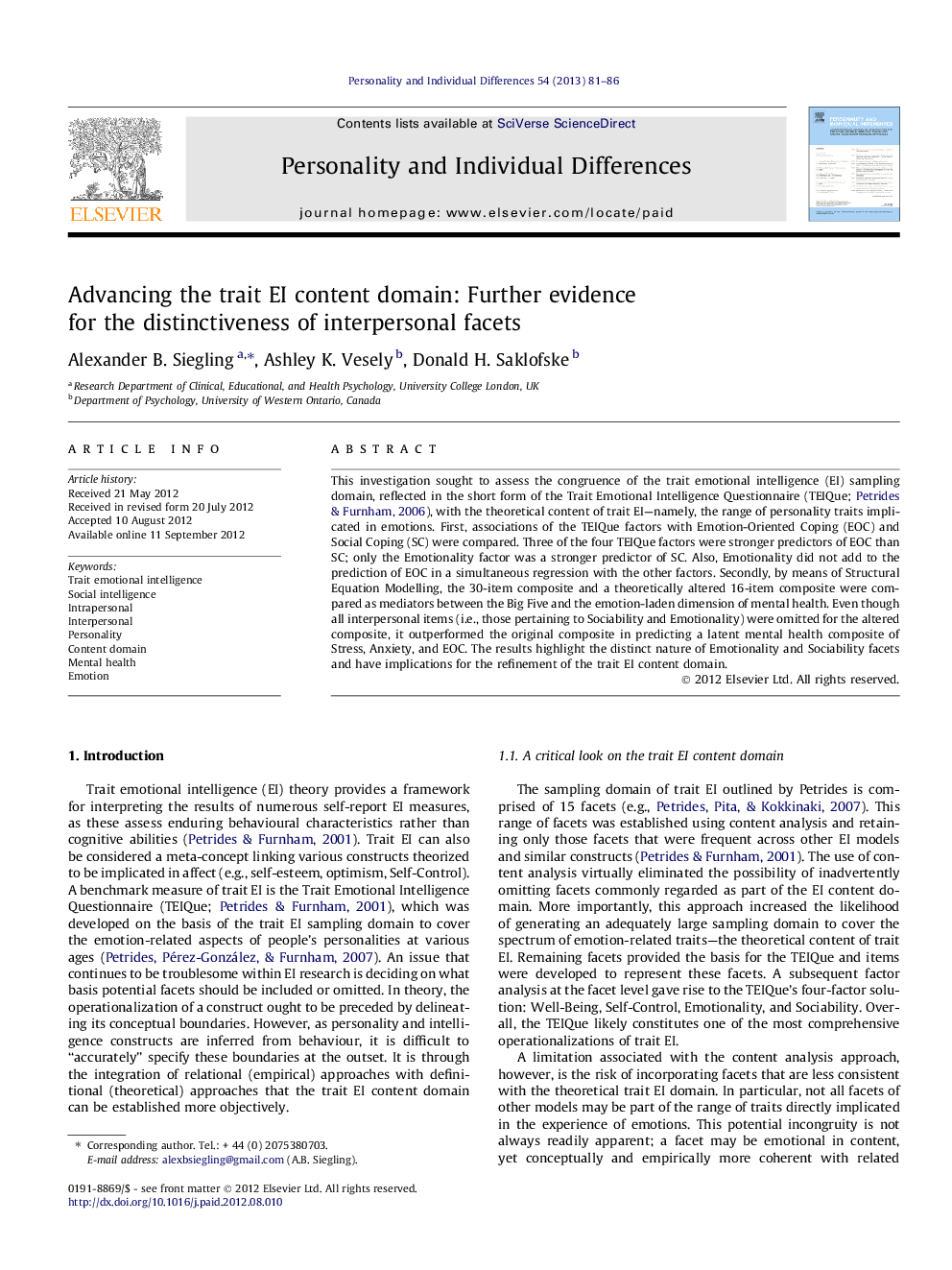| Article ID | Journal | Published Year | Pages | File Type |
|---|---|---|---|---|
| 890919 | Personality and Individual Differences | 2013 | 6 Pages |
This investigation sought to assess the congruence of the trait emotional intelligence (EI) sampling domain, reflected in the short form of the Trait Emotional Intelligence Questionnaire (TEIQue; Petrides & Furnham, 2006), with the theoretical content of trait EI—namely, the range of personality traits implicated in emotions. First, associations of the TEIQue factors with Emotion-Oriented Coping (EOC) and Social Coping (SC) were compared. Three of the four TEIQue factors were stronger predictors of EOC than SC; only the Emotionality factor was a stronger predictor of SC. Also, Emotionality did not add to the prediction of EOC in a simultaneous regression with the other factors. Secondly, by means of Structural Equation Modelling, the 30-item composite and a theoretically altered 16-item composite were compared as mediators between the Big Five and the emotion-laden dimension of mental health. Even though all interpersonal items (i.e., those pertaining to Sociability and Emotionality) were omitted for the altered composite, it outperformed the original composite in predicting a latent mental health composite of Stress, Anxiety, and EOC. The results highlight the distinct nature of Emotionality and Sociability facets and have implications for the refinement of the trait EI content domain.
► As expected, three TEIQue factors correlated more strongly with Emotion Coping than Social Coping. ► Only the Emotionality factor was a stronger predictor of Social Coping than Emotion Coping. ► Emotionality did not predict incremental variance in Emotion Coping over the other TEIQue factors. ► A delimited intrapersonal composite outperformed the original 30-item composite as a mediator.
